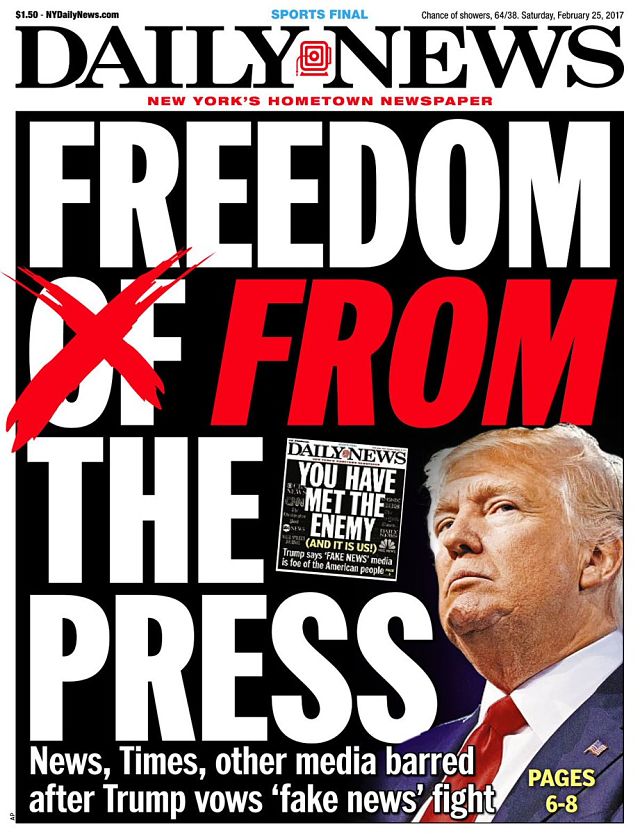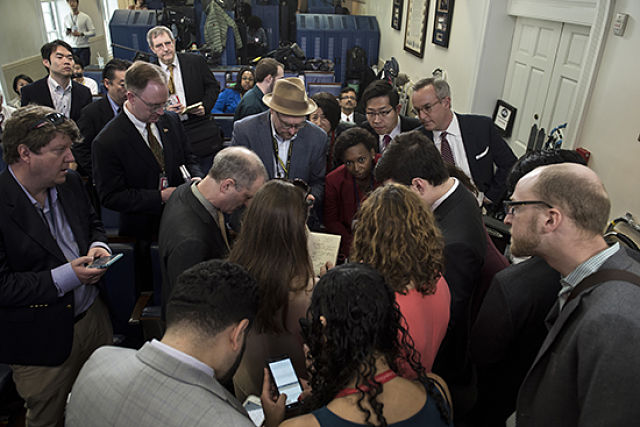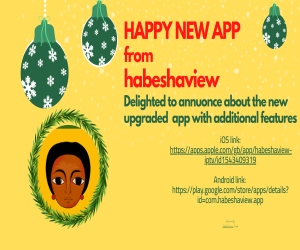 (Image: New York Daily News Twitter@NYDailyNews)
(Image: New York Daily News Twitter@NYDailyNews)
Updated: FEB. 25, 2017
Speaking at the Conservative Political Action Conference Friday, President Trump took his anti-media rhetoric to a new level, doubling down on his description of journalists as “the enemy of the people” and calling for an end to the use of anonymous sources. This on a day when his press secretary Sean Spicer barred reporters from The New York Times, BBC, BuzzFeed News, CNN, Politico, The Los Angeles Times and The Huffington Post from his daily White House press briefing.
The unrelenting attacks on the news media damage American democracy. They appear to be part of a deliberate strategy to undermine public confidence and trust by sowing confusion and uncertainty about what is true. But they do even greater damage outside the United States, where America’s standing as a global beacon of press freedom is being drastically eroded.
This is not just a matter of United States prestige. At a time when journalists around the world are being killed and imprisoned in record numbers, Mr. Trump’s relentless tirades against “fake news” are emboldening autocrats and depriving threatened and endangered journalists of one of their strongest supporters — the United States government.
Of course the United States’ record on press freedom is far from perfect. During the Obama administration, aggressive leak investigations — including a record number of prosecutions under the 1917 Espionage Act — regularly ensnared the press. But the United States has had tremendous moral influence when it spoke out about press freedom violations, and not just because of the commitment to the First Amendment. The fact that United States political leaders regularly withstood relentless criticism in the press gave them legitimacy when they called for the protection of critical voices in repressive societies.
For example, the Obama administration, through public statements and behind-the-scenes diplomacy, helped win the release of imprisoned journalists in Ethiopia and Vietnam. President George W. Bush regularly spoke out about press freedom violations, in places like Venezuela and Zimbabwe.
Earlier this month, the Venezuelan government suspended CNN’s Spanish language network following accusations by President Nicolás Maduro that the network manipulates the news. President Trump was silent. Really, what could he say?
—
Related:
Trump Era America: US Journos Barred From White House Briefing

Reporters gather after being denied access to an informal White House press secretary briefing. (AFP)
CPJ
February 24, 2017
New York –The Committee to Protect Journalists is concerned by the decision today to bar nine news outlets from an informal briefing known as “a gaggle” by President Donald Trump’s White House Press Secretary Sean Spicer. Separately, at the Conservative Party Action Conference in Maryland today, Trump said that journalists should not be allowed to use anonymous sources, and accused the press of producing “fake news,” according to reports.
“President Trump’s calls for an end to anonymous sources was alarming. It is not the job of political leaders to determine how journalists should conduct their work, and sets a terrible example for the rest of the world, where sources often must remain anonymous to preserve their own lives,” said CPJ Executive Director Joel Simon. “We are concerned by the decision to bar reporters from a press secretary briefing. The U.S. should be promoting press freedom and access to information.”
Aides to the press secretary denied access to reporters from CNN, The New York Times, Politico, The Hill, the BBC, the Daily Mail, Buzzfeed, the Los Angeles Times, and New York Daily News, saying that only those previously confirmed could attend the briefing, The New York Times reported. An administration spokesperson said in a statement that a press pool was in place for the informal briefing, which was taking in a smaller office that the regular briefings. Reporters from The Associated Press and Time magazine boycotted the briefing in solidarity with their colleagues.
Here’s the audio from the White House briefing that blocked CNN, New York Times
—
Related:
Focus on Ethiopia: A Look at the New ‘America First’ Foreign Policy
Ethiopia: Looking Beyond Obama, Here is What Trump’s Team is Asking
U.S.-Africa Policy in 2017: What Trump Should Do
Ethiopia: US-Africa Relations in Trump Era
Join the conversation on Twitter and Facebook.

























